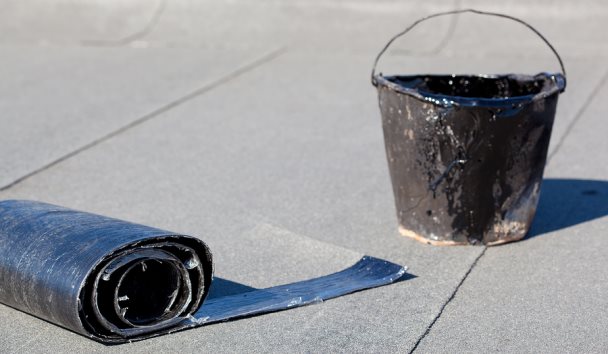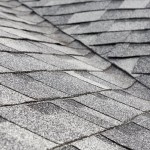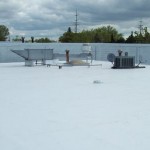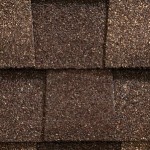Flat Roofs: The Pros and Cons

Shopping for a Flat Roof Company?
While many people have seen a flat roof, some are not aware of the pros and cons. When you compare the benefits and drawbacks of flat roofs to pitched roofs, you can begin to make a determination as to what makes each option the right choice.
The Benefits of Flat Roofs
There are many benefits associated with flat roofs, which is why so many residential and commercial properties opt for this type of construction.
One of the primary benefits of flat roofs is that these are easier to install since they lack pitch. For this reason, installers do not have to navigate the roof as they are installing it. As a result, the installation process is much quicker.
Due to the fact that the installation process is more efficient, the cost of a flat roof is less than a pitched roof. Along with the cost of labor, flat roofs do not require rafters and trusses, as is the case with pitched roofs. Since less material is necessary it is only natural that the cost be lower.
A flat roof can help increase the amount of usable space in a home or commercial building. With pitched roofs, the amount of usable space is often times decreased.
Problems with Flat Roofs
Despite the many benefits of flat roofs, there are some potential problems to be aware of. These include:
- Maintenance. Since flat roofs do not have a natural way for water to filter away, these need to be monitored more closely than those that are pitched. With standing water and debris, the roof’s lifespan can be greatly reduced.
- Lifespan. Flat roofs take a lot of abuse, being that they do not drain naturally. This leads to a life expectancy as short as 10 years.
- More prone to leaking. As noted above, these roofs do not naturally move water off the property. This can lead to an increased chance of leakage. Subsequently, insurance companies may charge a higher premium.
Consider the Advantages
Due to the fact that pitched roofs are more common than flat roofs, many people automatically assume they are better, however, nothing could be further from the truth. There are times when this type of roof makes more sense, such as when more usable space is required or a tight budget must be adhered to.
The advantages of flat roofs run deep, and once you compare the pros and cons it becomes easier to see that moving in this direction may be in your best interest.
When a property is being built from the ground up, there are many details to take into consideration. The roof is one of the most important, with the owner having to make the decision as to whether they should opt for a flat or pitched roof design.
After comparing the pros and cons of flat roofs, based on the design of the building and budget, it is much easier to make an informed and confident decision on how to move forward.





